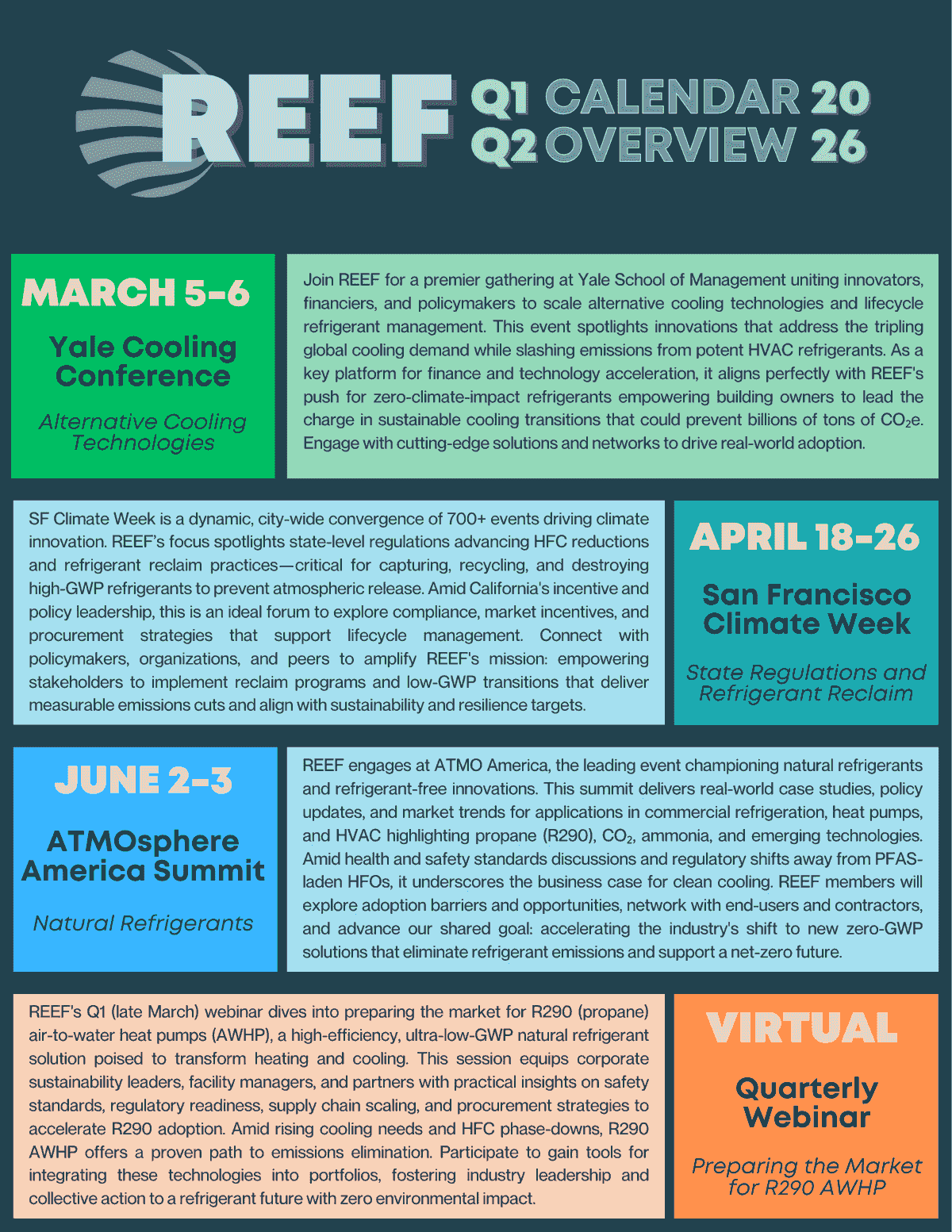
- Get Involved
- …
- Get Involved
- Login

- Get Involved
- …
- Get Involved
- Login

HVAC refrigerants released into the atmosphere account for approximately 10% of the global warming potential worldwide.
This estimate is based on various studies and reports, including those by the Intergovernmental Panel on Climate Change (IPCC) and the United Nations Environment Programme (UNEP).
REEF is a non-profit community
of corporate sustainability leaders and industry partners. We see a world
where refrigerants have zero climate and environmental impact.
Refrigerant management and replacement with zero GWP alternates can avoid 89.74 gigatons of CO2e emissions over 30 years.
This estimate is based on various studies and reports, including those by Project Drawdown.
Refrigerant gases used in heating and cooling represent the world’s fastest-growing category of greenhouse gases and are powerful, growing, and often overlooked drivers of climate change. Global demand for cooling is expected to triple by 2050 and in the U.S. alone, the installed “refrigerant bank” is projected to double by 2050, growing to 6.9 billion tons of CO₂e—a volume greater than current U.S annual economy-wide CO2e emissions. Project Drawdown identifies refrigerants as one of the single most impactful climate solutions of this decade, estimating that better management and a shift away from high-GWP refrigerants could avoid up to 0.5°C of warming by 2100 and cut projected 2050 global emissions by as much as 64%. Despite proven solutions and progress under the Kigali Amendment and AIM Act, action on refrigerants remains too slow to meet climate targets.
REEF is building a community of building owners and operators to educate, engage and empower organizations to unlock the potential of low-GWP refrigerants and accelerate the industry's leadership in this transition.

Join REEF for access to resources and a network of industry leaders.
Contribute to drive significant changes in the industry.
Learn More
Sign up with your email address to receive news and updates.
REEF is a California-based 501(c)(3) nonprofit.

